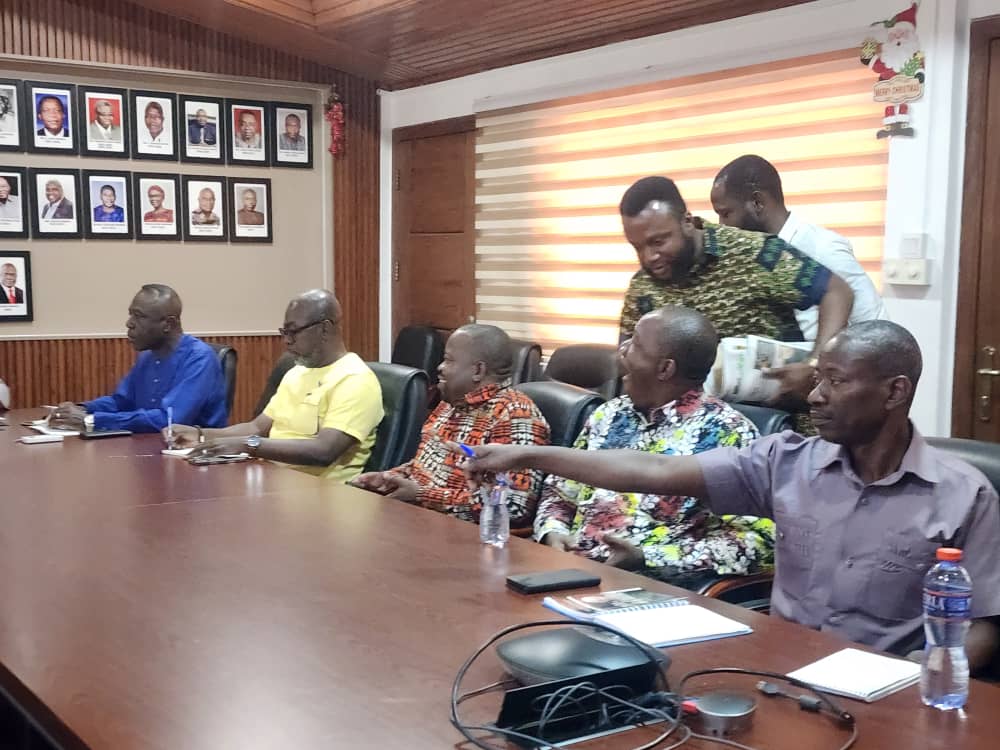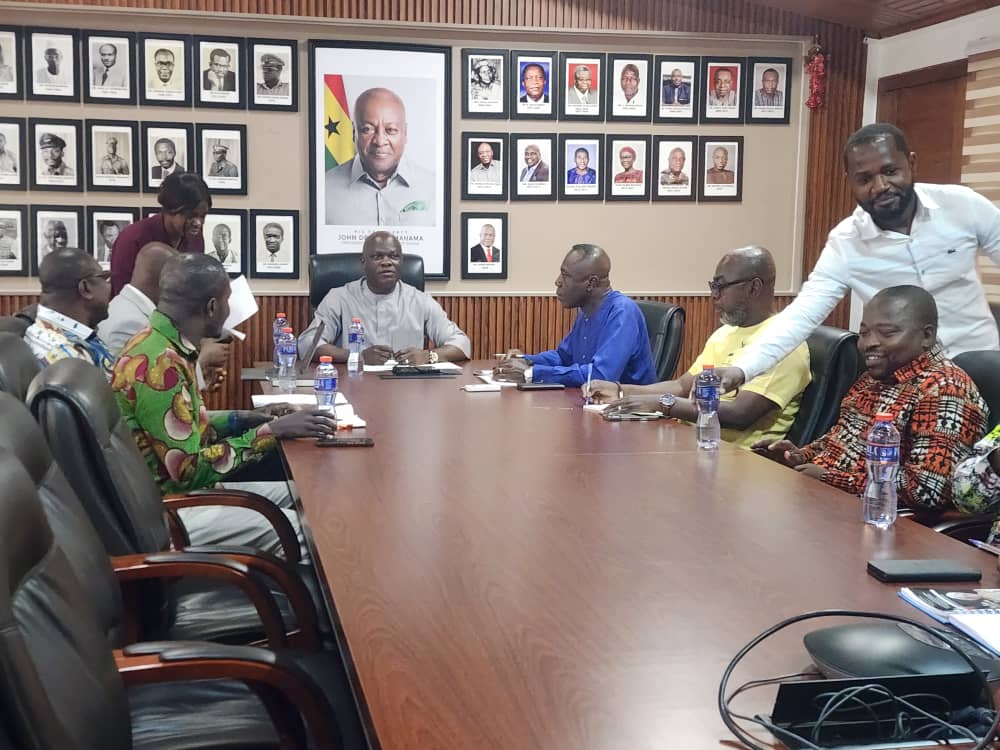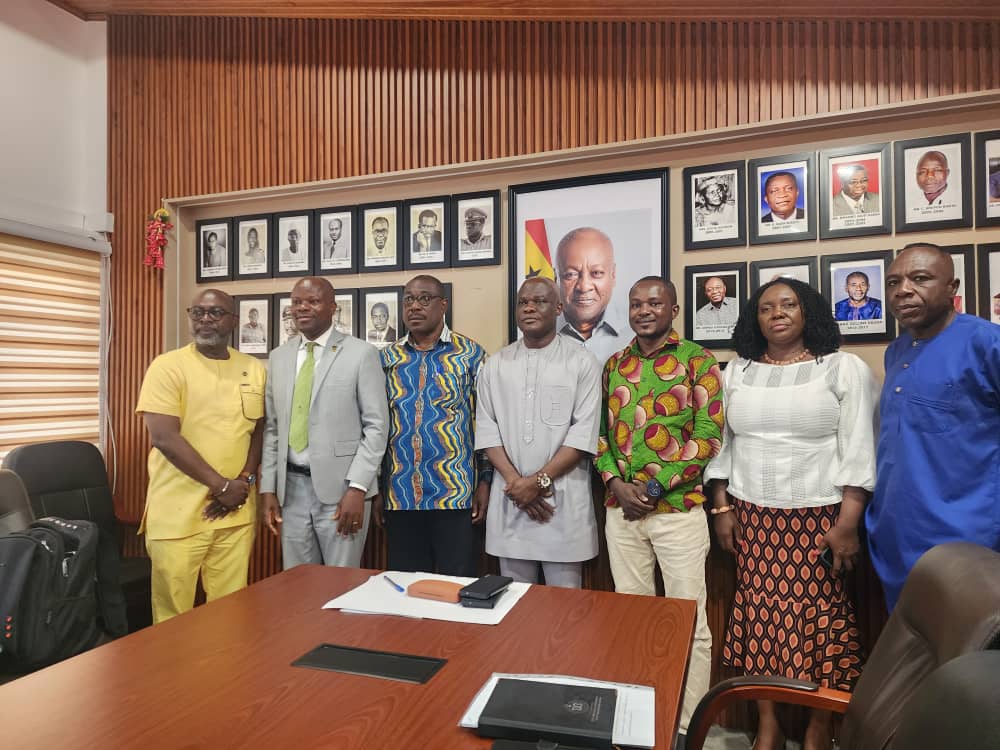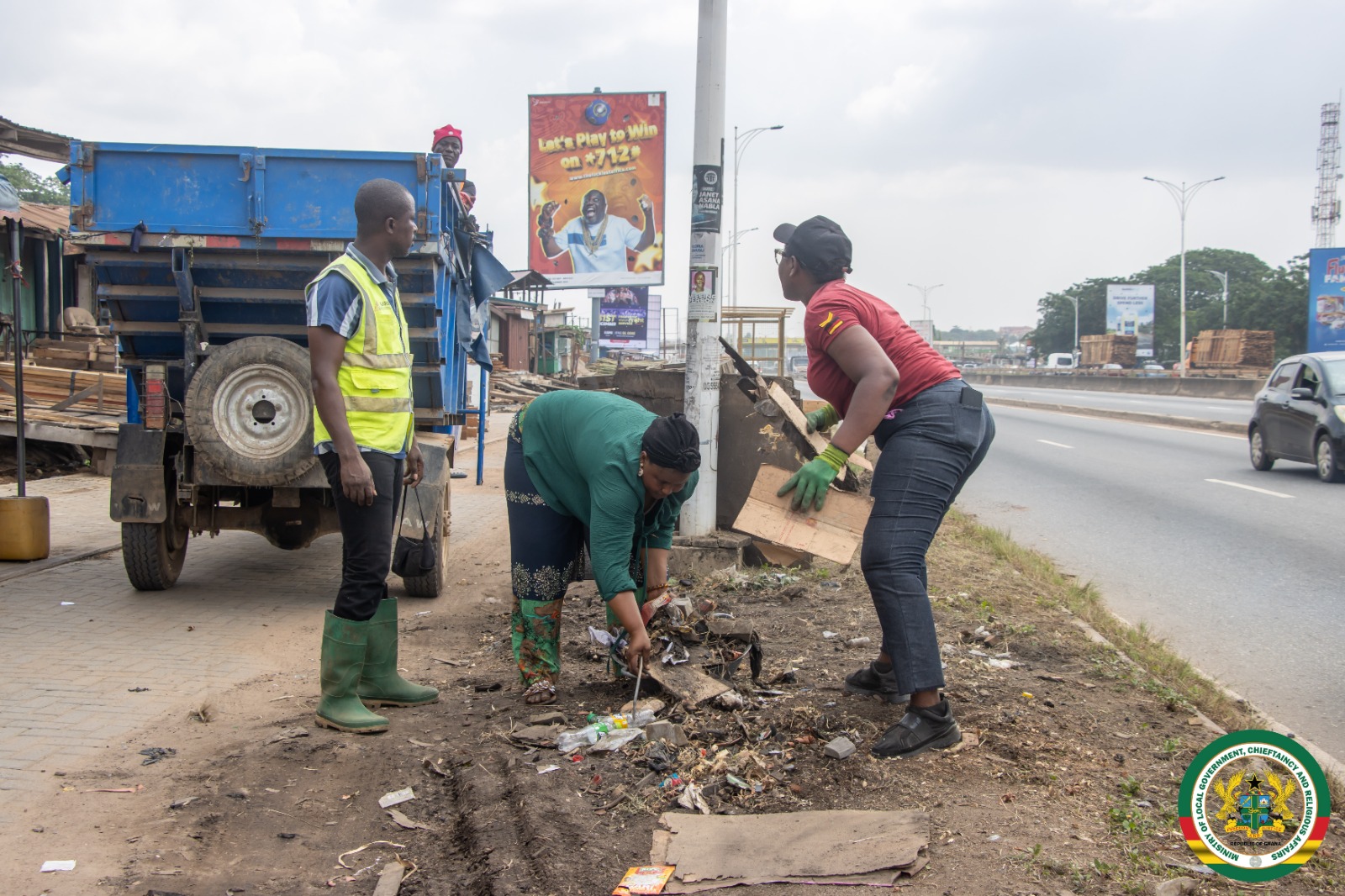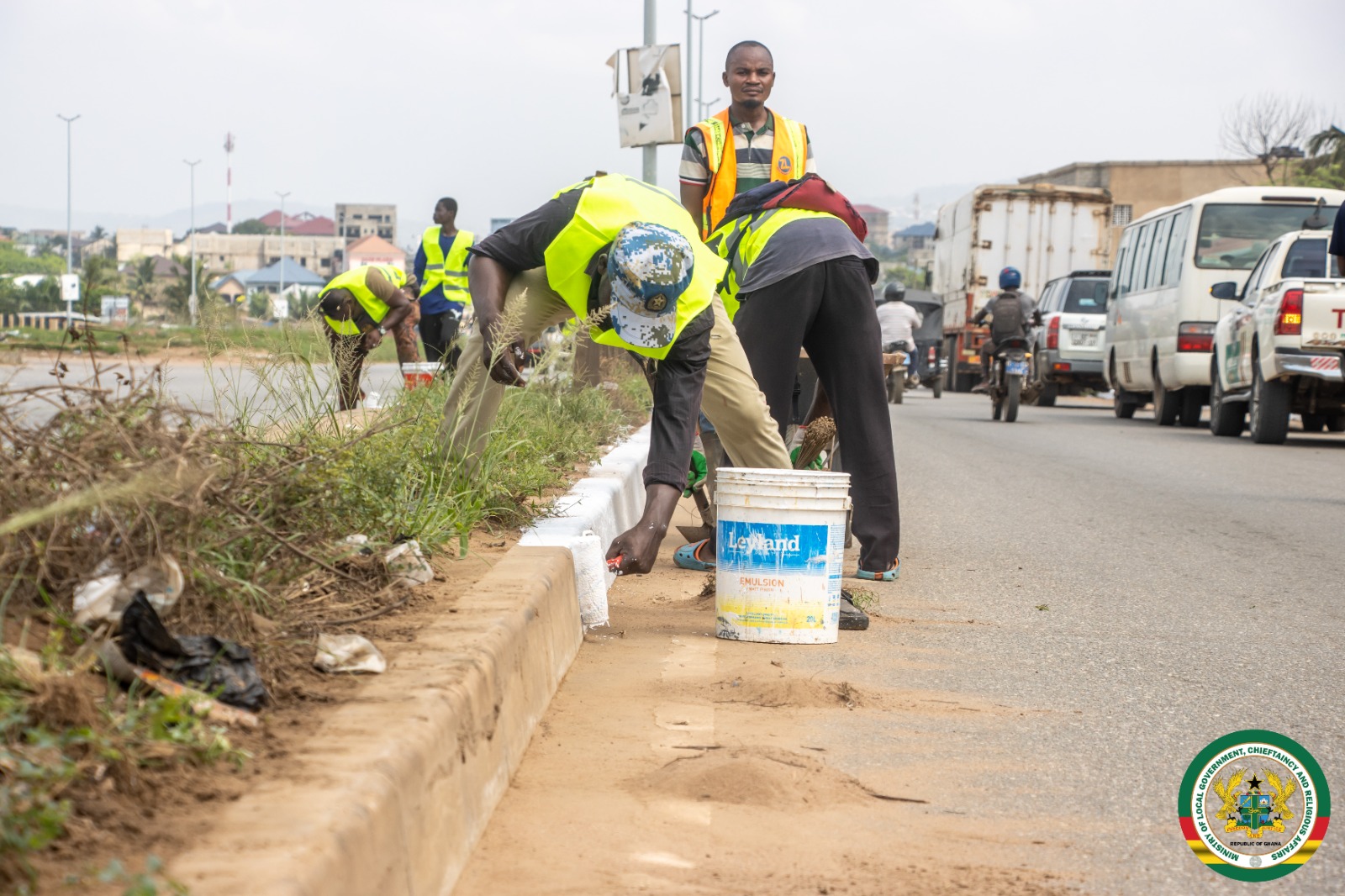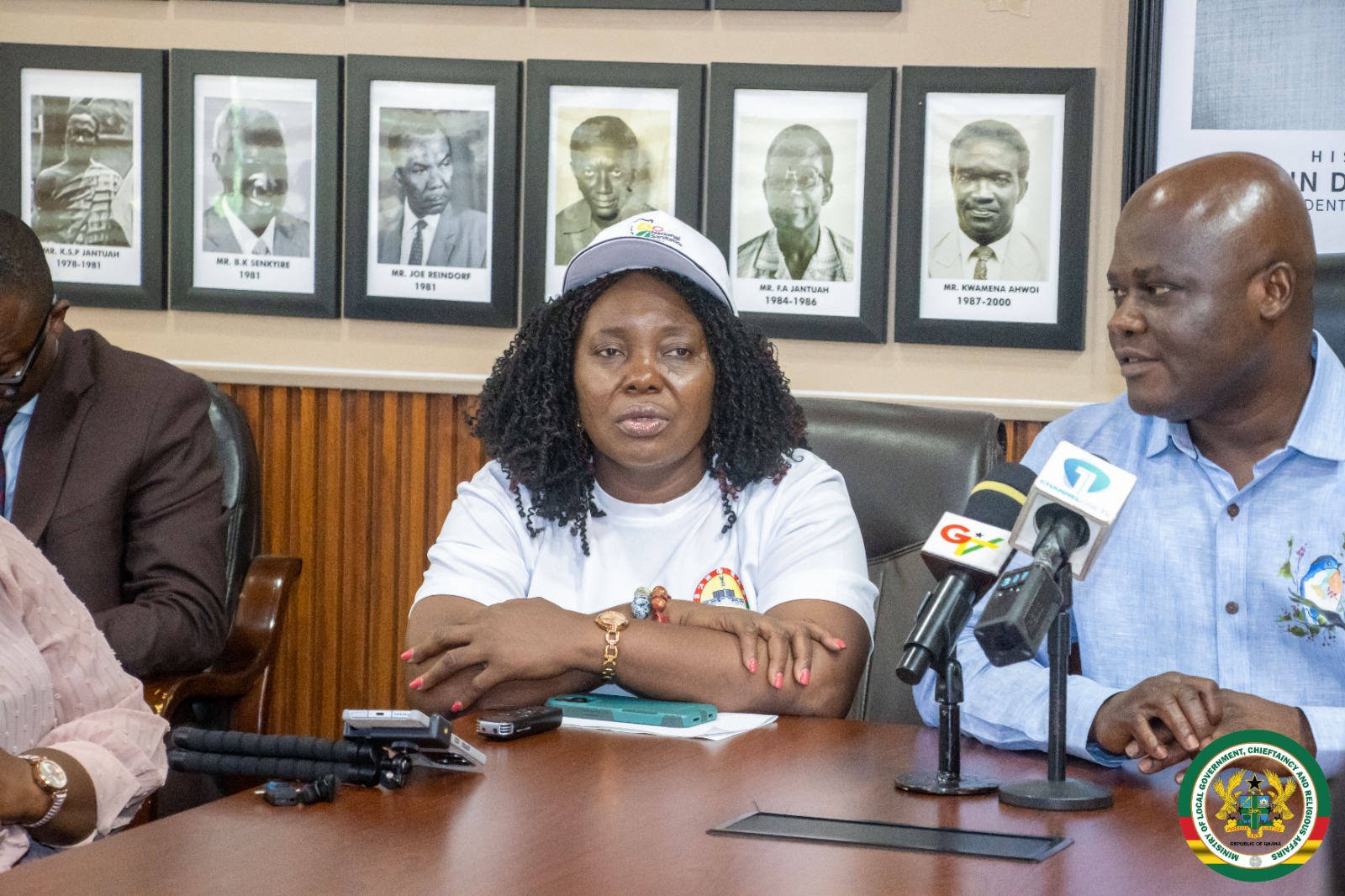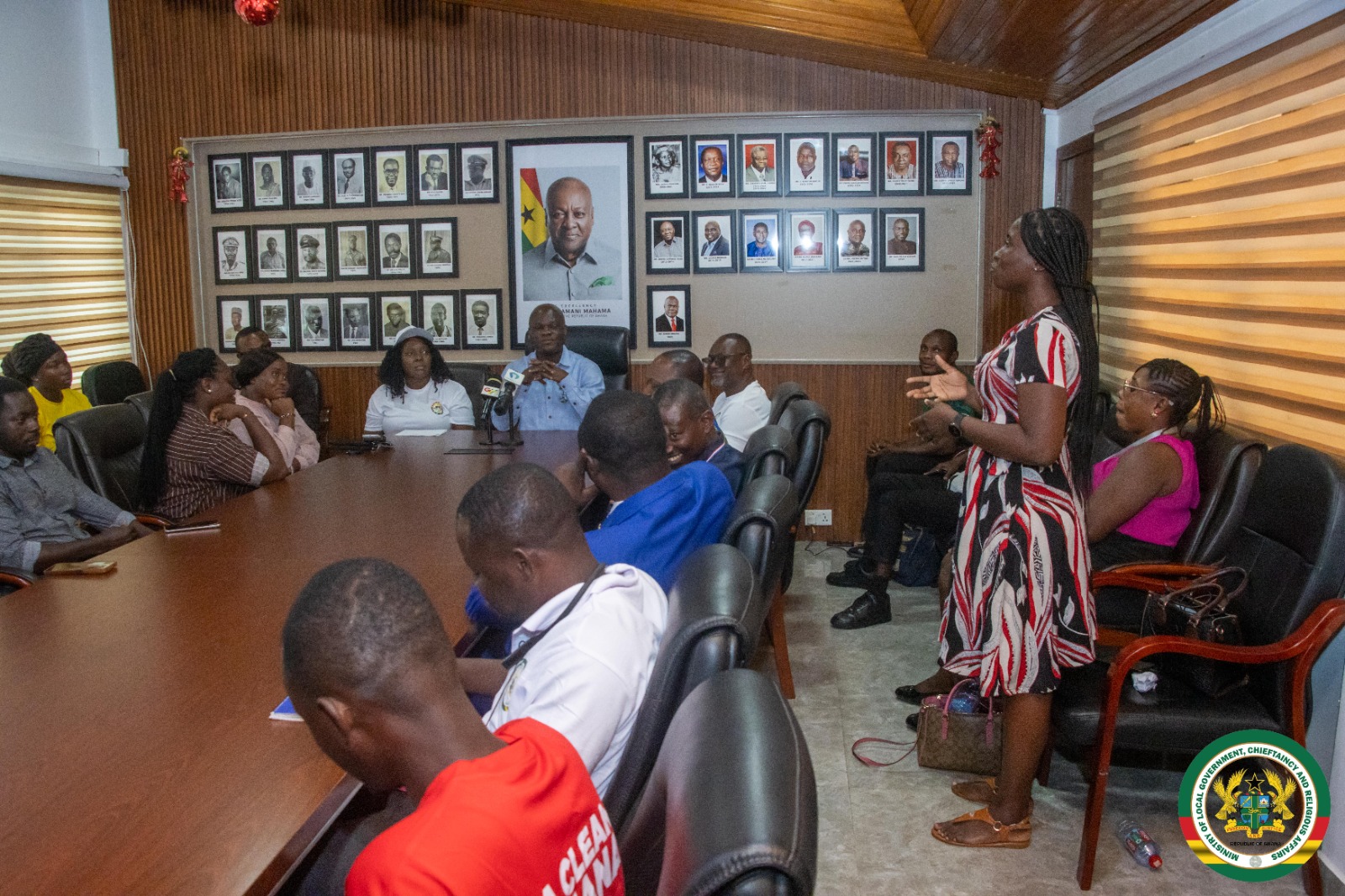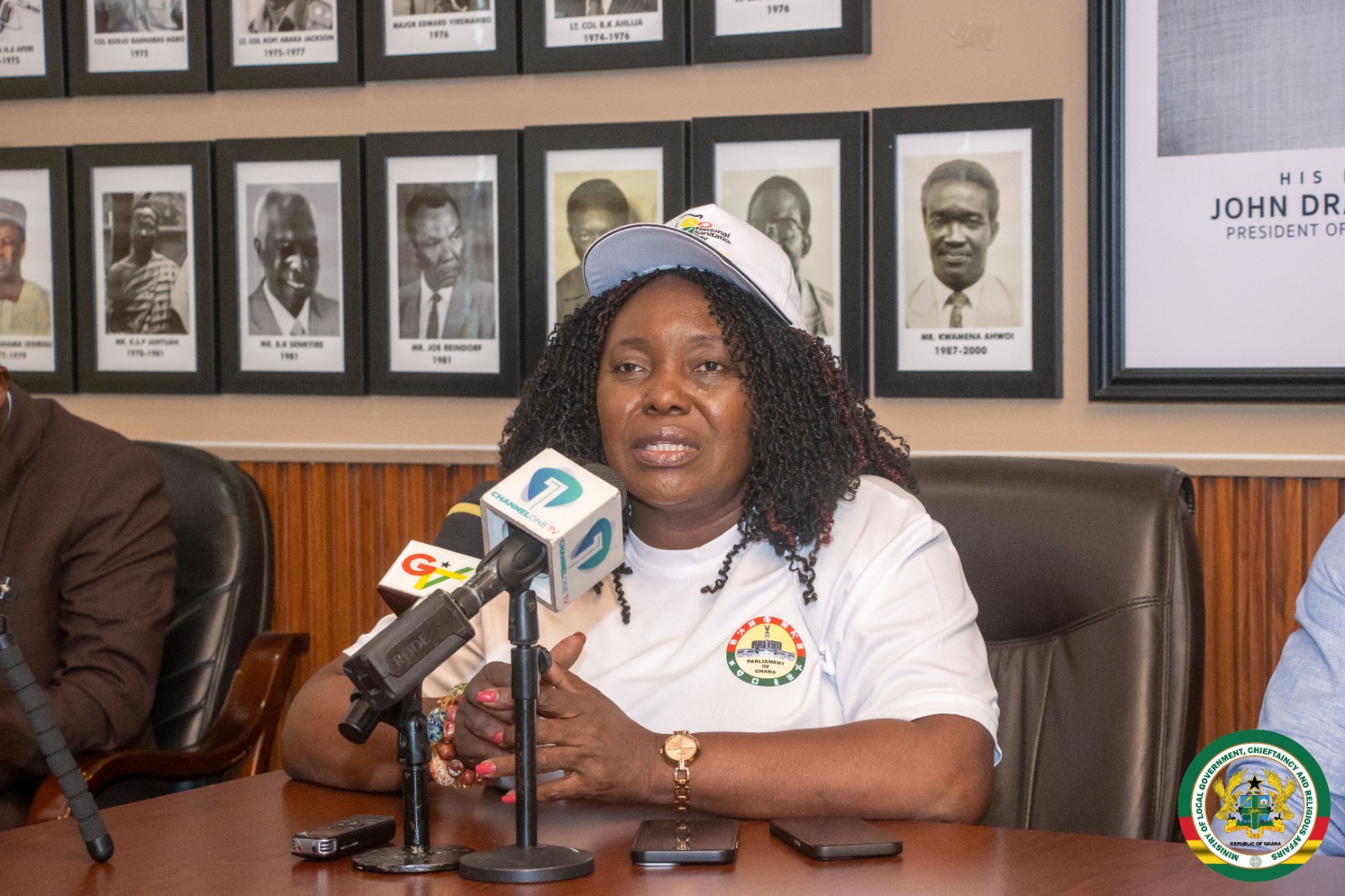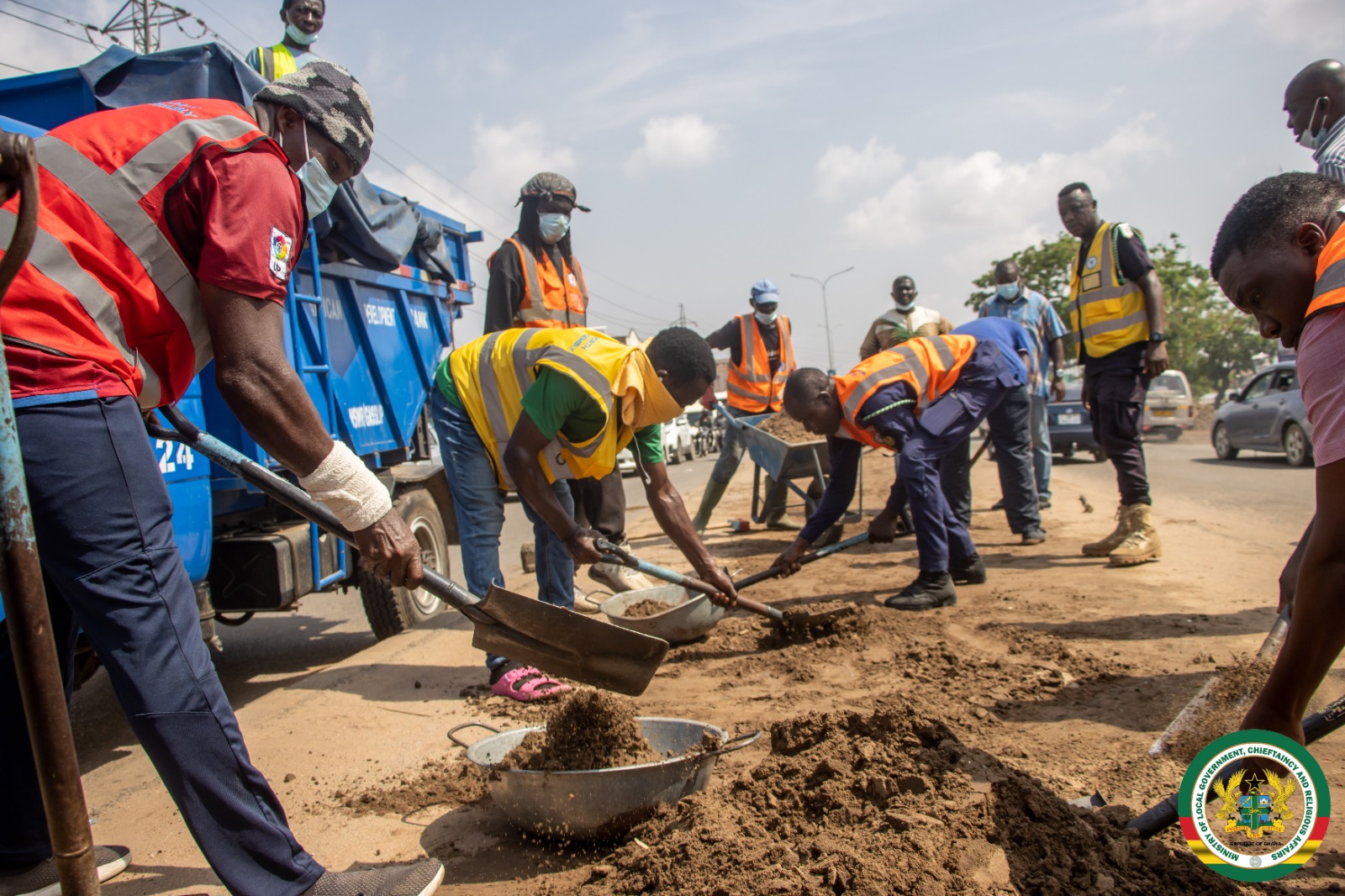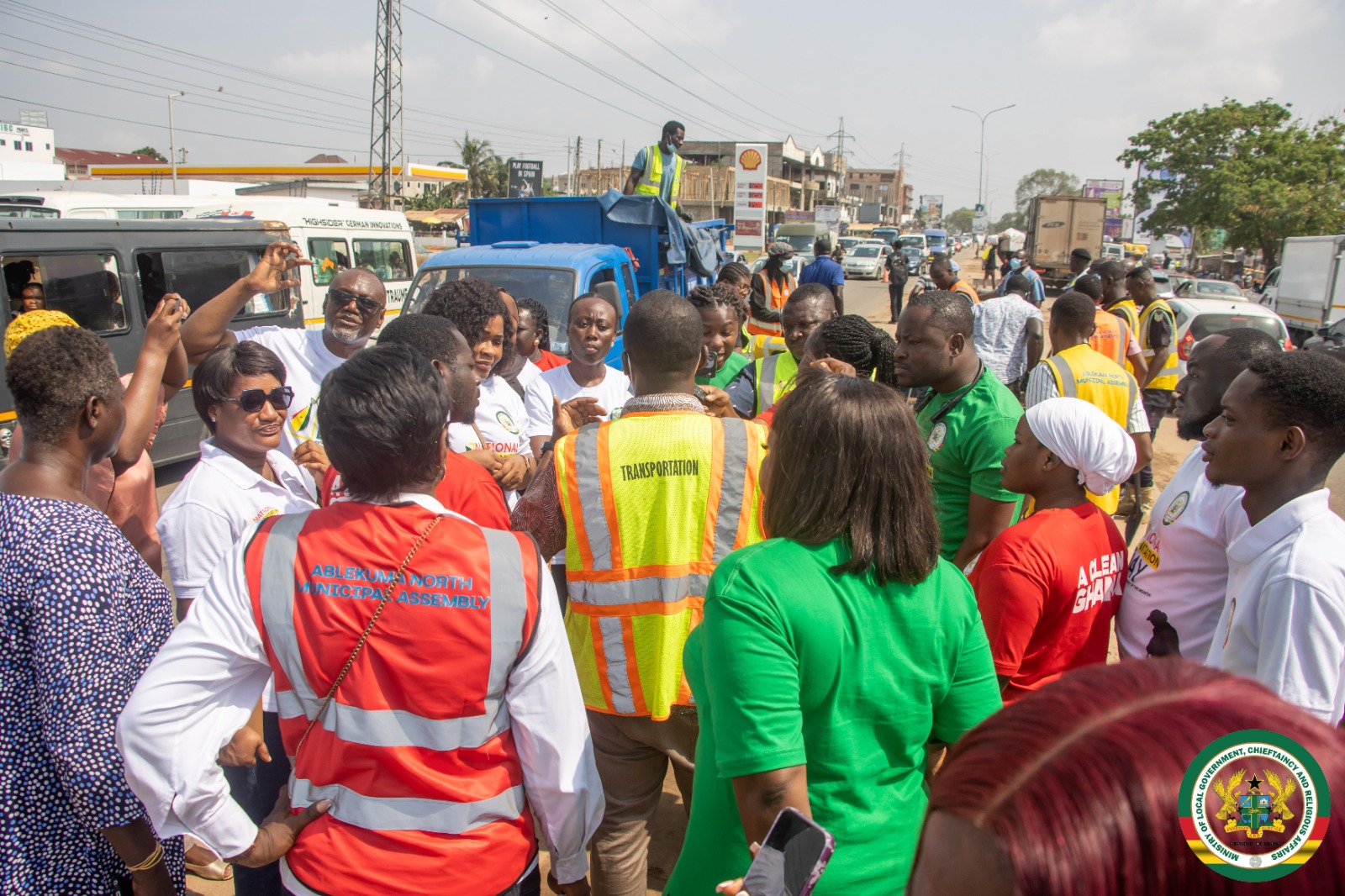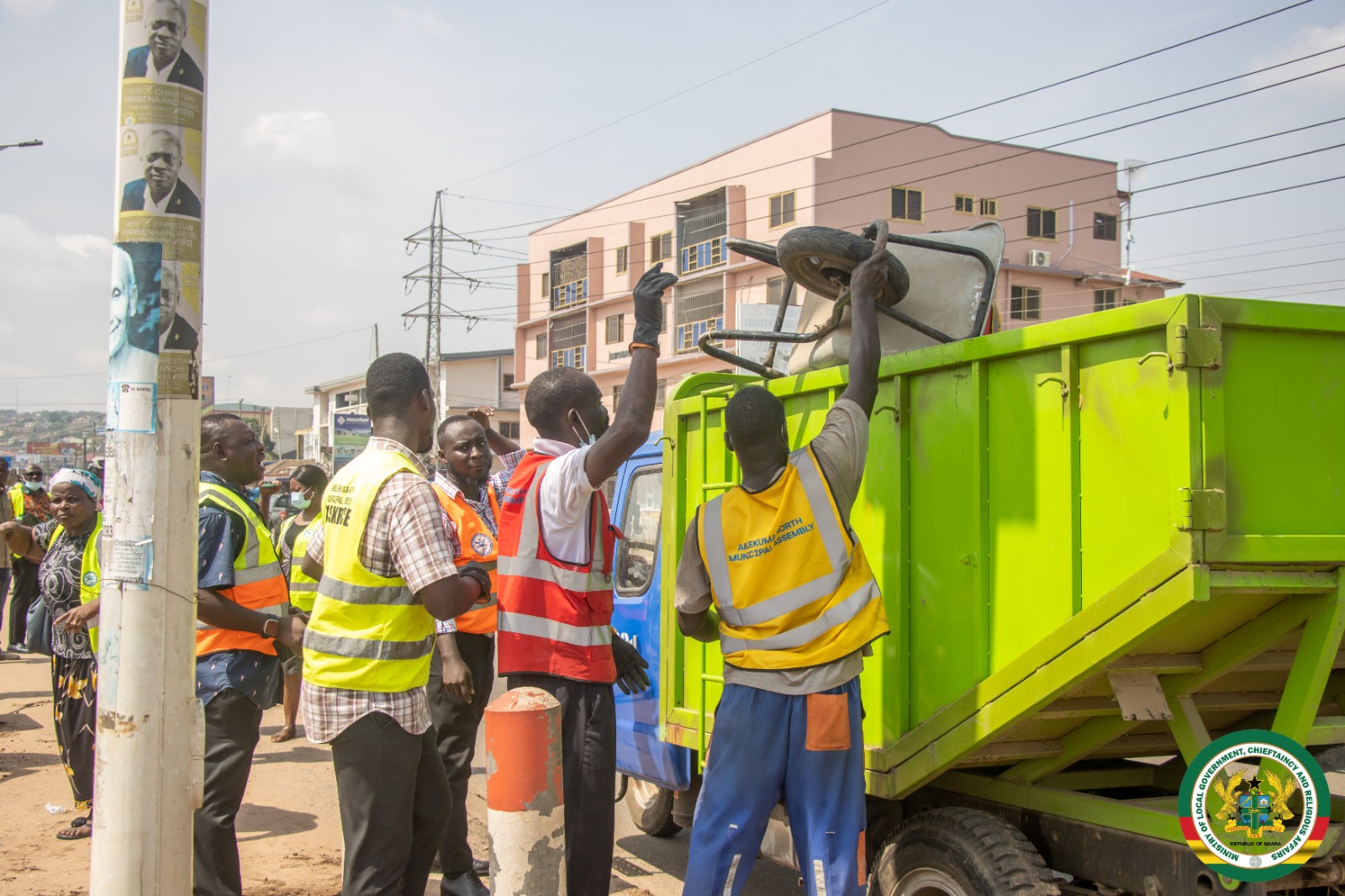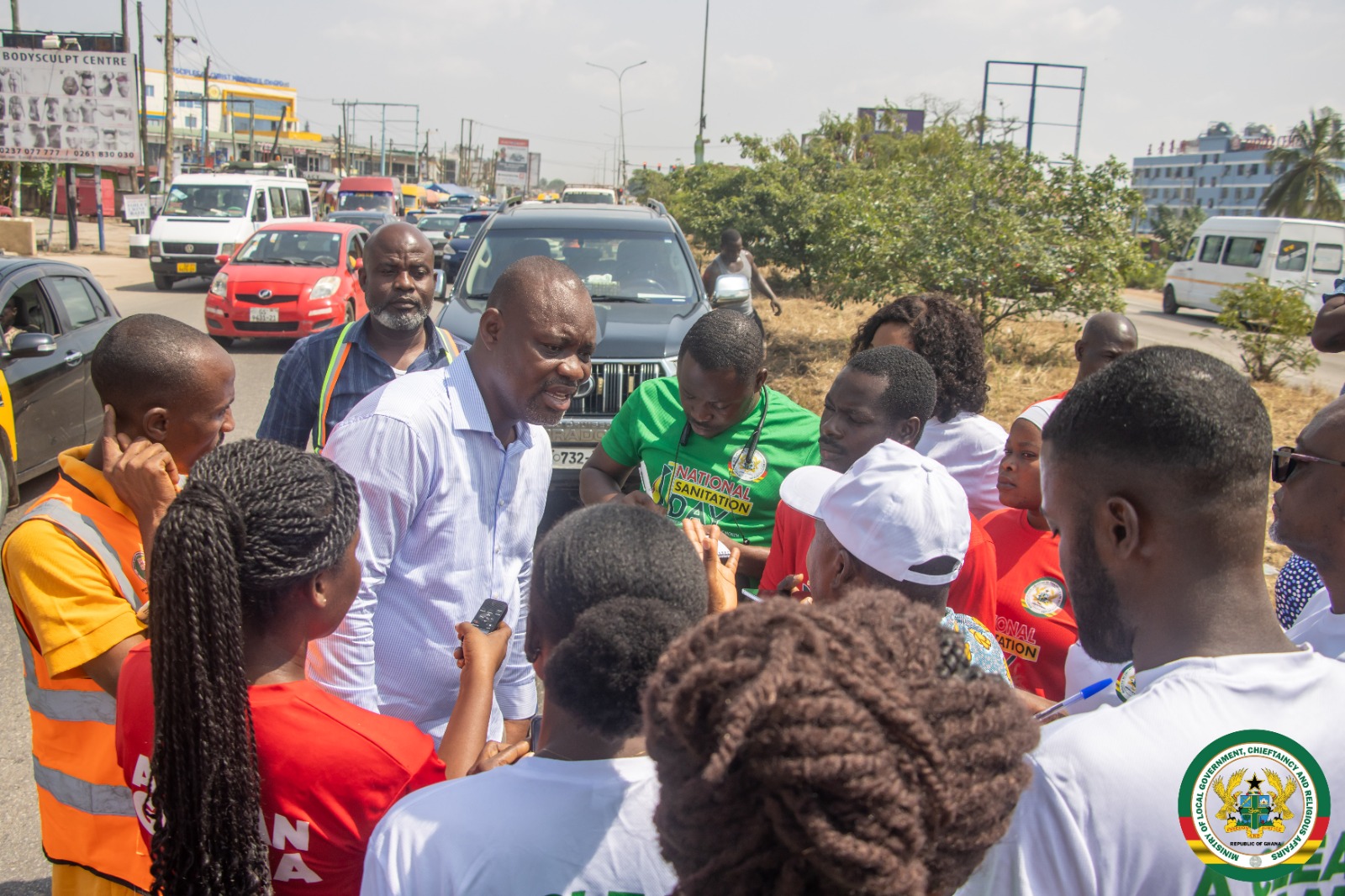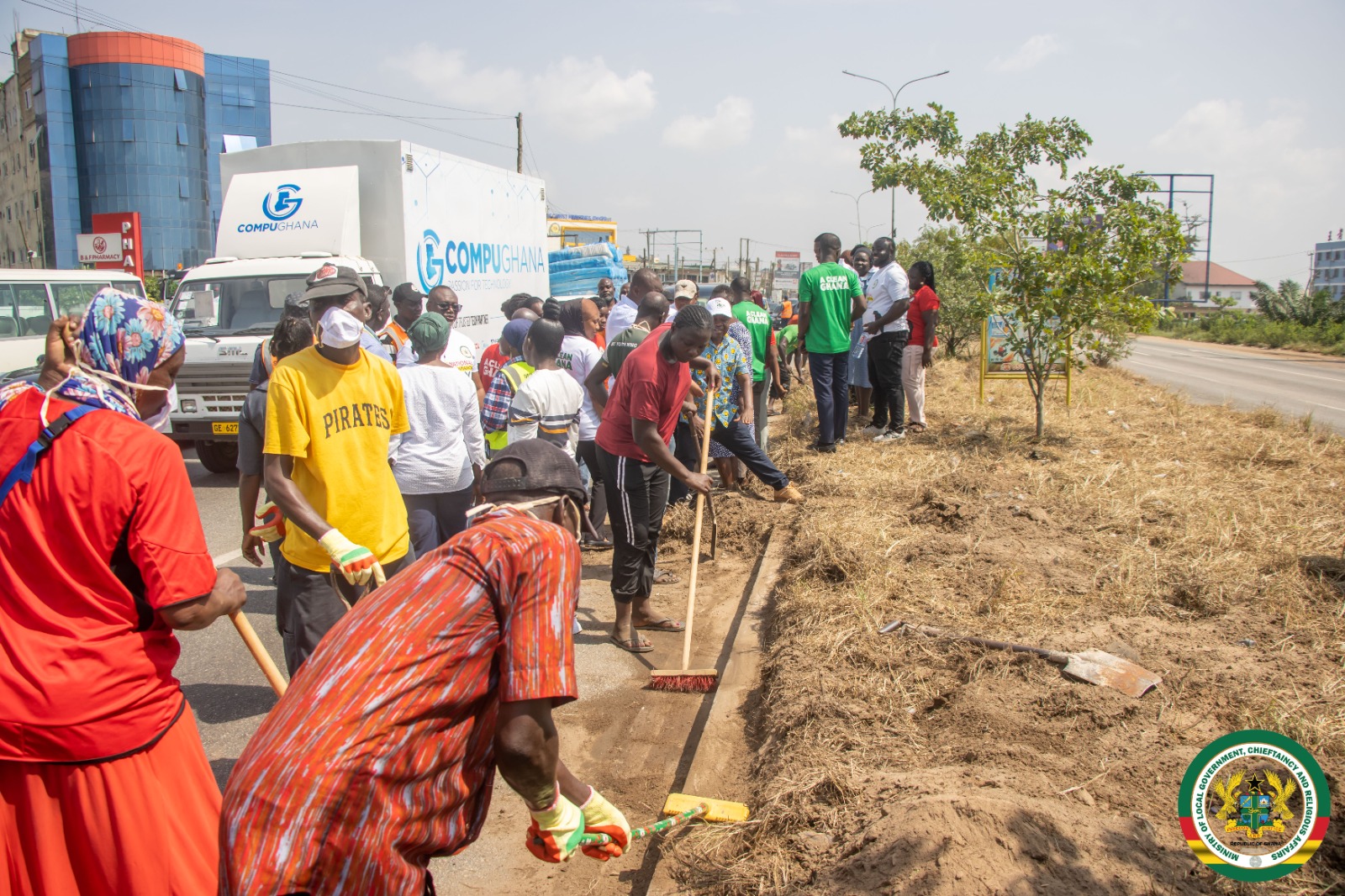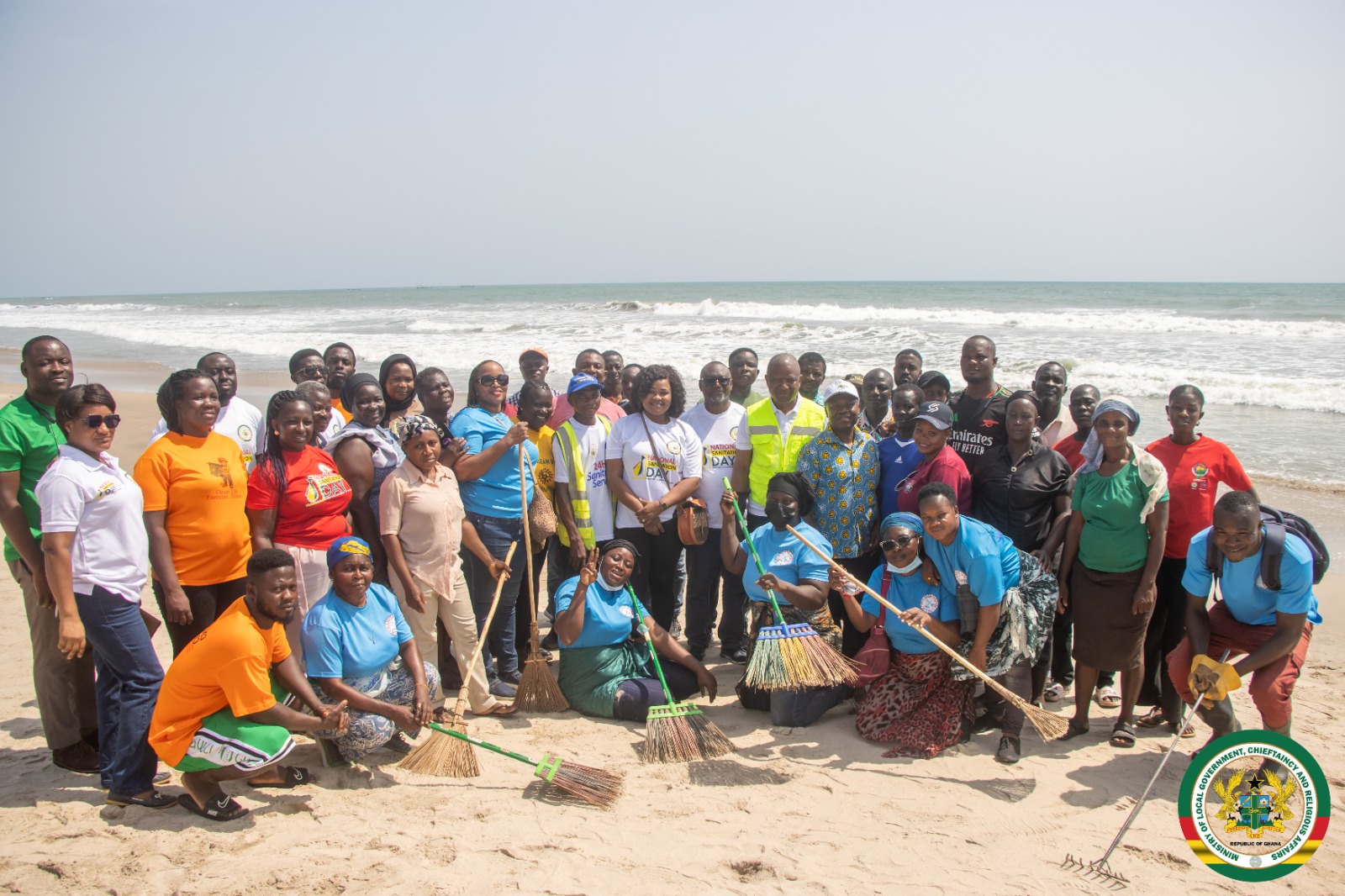Rural development must be intentional, gradual, and well-integrated if Ghana is to achieve balanced national growth, the Minister for Local Government, Chieftaincy and Religious Affairs, Hon. Ahmed Ibrahim, MP, has stated.
The Minister made this observation during a courtesy meeting with the Director and Management of the Institute for Rural Development and Innovation Studies (IRDIS) of the Kwame Nkrumah University of Science and Technology (KNUST), who called to congratulate him on his appointment and to discuss areas of collaboration on rural development.
Hon. Ahmed Ibrahim welcomed the Institute’s commitment to supporting the implementation of the National Rural Development Policy, describing the support as critical to addressing key national challenges, including rural-urban migration and unplanned urban expansion.
He noted that strengthening rural development systems would help improve livelihoods in rural communities, reduce pressure on urban centres, and contribute to improved food security, better access to healthcare, reduced social vices, and lower unemployment levels.
The meeting discussed areas of collaboration such as promoting sustainable rural livelihoods, institutional capacity strengthening for Metropolitan, Municipal and District Assemblies (MMDAs) and traditional authorities, and technical support to the Ministry in implementing the National Rural Development Policy.
IRDIS also indicated its readiness to support the Ministry through graduate-level training in rural development, research, and innovation to build the human capacity required to drive inclusive rural transformation.
Both parties expressed commitment to sustaining the collaboration to support Ghana’s rural development agenda.
Source: Darling Maame Efua Cann
MLGCRA PR Unit

